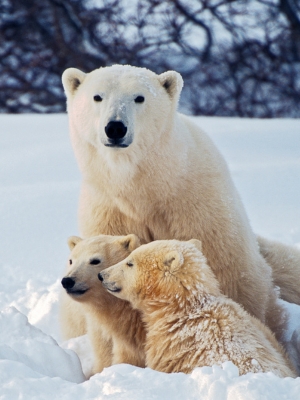If you have been following our work, you may have seen our newest report, Oceans Away from Home: The Suffering of Fish in Captivity, and noticed our recent focus on often neglected and understudied aquatic animals. As a result, a new and disturbing development in the farming industry – octopus farming – has caught our attention.
The company Grupo Nueva Pescanova, based in Galicia, Spain, came into public view when it applied for permits to operate an octopus farm that could eventually provide up to 3,000 tons of octopus meat per year, requiring the annual slaughter of about one million octopuses.
Farming Octopuses Is Cruel, Impractical, and Will Have Ecological Consequences
In opposition of octopus farming are animal advocates, scientists, and environmentalists, stating that octopuses should not be farmed in a large-scale, factory setting, due to their exceptionally high intelligence level, emotional capacity (including experiencing pain and distress), and solitary nature; all qualities that make mimicking their natural lives in captivity impossible. Others have argued that the farming of octopus would be unsustainable, as octopuses are carnivores who require up to three times their weight in feed and would further deplete the already low fish stocks required for their diets in captivity.
Octopus farms would also pollute the surrounding environment; they would produce nitrogen and phosphorus waste, in addition to being responsible for contaminants including fertilizers, algaecides, herbicides, and disinfectants. Diseases could spread from the farms to the wild environment, and to the many fragile aquatic animals living within those environments. These health risks become more pronounced considering the high likelihood of escapes occurring, as octopuses are renowned escape artists from captive enclosures.
As solitary animals, octopuses become aggressive and territorial when housed together. In facilities that have housed octopuses together in groups, cannibalism has been reported. In some instances, high stress levels caused by unnatural living environments has led to self-cannibalism, where they eat their own arms.
For these reasons, efforts to stop the farming operation have been attempted around the world. For example, lawmakers in Washington state in the U.S. are considering a ban on octopus farming while an online petition calling for a global ban has received nearly one million signatures. As the company waits to hear on the permits for the farm, campaigners against the farm are calling on the European Union to ban octopus farming as well as imports of farmed octopus.
Octopus Farming Will Not Protect Wild Octopus Populations
While octopus has been traditionally consumed in parts of Asia, in regions around the Gulf of Mexico, and in Mediterranean countries including Spain, Portugal, Italy, and Greece, octopus meat has been increasing in popularity among the wealthy in specialty dishes worldwide. Until recently, most of the demand had been satisfied by wild stocks of octopus. Concerningly, from 1950 to 2014, the catch of wild octopuses increased by eight times, with a yearly catch of almost five million tons recorded in 2014.
While supporters of octopus farming argue that it could help improve the population depletion of wild octopuses, there is evidence that the opposite may be true. A study in 2019, which analyzed more than four decades of data from around the world, suggested that increases in aquaculture did not result in fewer wild fish being caught. Instead, researchers found that aquaculture may be contributing to increased demand for aquatic animals as food.
Further, as of now, there are no EU rules that protect farmed octopuses from abuse, cruelty, neglect, or poor housing conditions, as the existing animal welfare legislation does not include invertebrates. The kinds of protections that would be needed to farm octopus – a fragile animal that can be easily hurt by tank collisions or rough handling together with the high intellectual stimulation needed for them to achieve good welfare – led animal researchers to conclude that “high-welfare octopus farming is impossible.”
The company also plans on using ice baths to slaughter the octopuses, which contrasts with the view of the World Organisation for Animal Health, which in 2019 said that the method has been shown to “result in poor fish welfare,” and that while fish often stop moving relatively quickly after being placed in ice, “brain activity indicates the potential for the continuation of consciousness for a substantial period.”
An Example of Human Excess
Humans have always had a problem with excess; we crave more even when we become satiated. This wasteful way of being differentiates us from other animals; we take what we need and what we want. We see this problematic trend in areas that tragically affect the survivability and welfare of animals other than octopuses, including the growing interest in owning exotic animals as pets (the more dangerous and foreign, the better); buying an expensive fur coat (which took the lives of 60 minks to make); or illegally trafficking and selling endangered animals and their parts to make jewelry or luxury medicines.
The cruelties of factory farming – from domesticated animals such as pigs and chickens to wild animals like mink farmed for their fur – are well documented and understood. Join us in saying “no” to allowing octopus to be exploited in the same way and help us to keep wildlife in the wild.
Keep Wildlife in the Wild,
Devan

 Dear Reader,
Dear Reader,